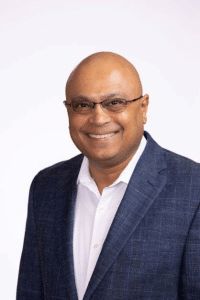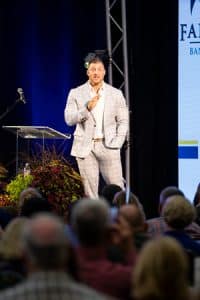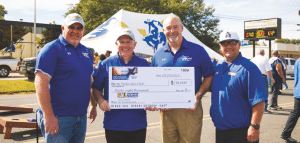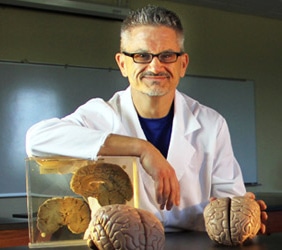 Ask Greg Taylor any question, and you are likely to get a precise and organized answer. By trade he is a chemical engineer – it’s how they operate.
Ask Greg Taylor any question, and you are likely to get a precise and organized answer. By trade he is a chemical engineer – it’s how they operate.
Asked why he chose to pursue his first bachelor of science degree in chemical engineering at the University of Tennessee, he knows precisely three reasons and lists them in chronological order:
1. He was good at math and science, and he was told that “if you are good at math and science, you should be an engineer.”
“I didn’t even know what an engineer was, but by the sixth grade, when people asked me that question, I told them I wanted to be an engineer,” he said.
2. His dad became the manager of a small chemical plant in Tennessee.
“If he had not worked with chemicals, my choice might have been different,” Taylor said.
3. An uncle he admired was a civil engineer.
“He would come home from his studies at La. Tech and play with us. If it hadn’t been that way, I could have easily chosen some other direction,” he said, acknowledging the influence of environment on the outcomes of his life.
With the benefit of hindsight, Taylor knows that his choice of first careers may have been more about external factors than an actual desire to become an engineer, but for 21 years he worked in research and development for Proctor & Gamble developing materials used to manufacture products that are a part of everyday life. At that time, chemical engineering was among the top paying professions.
Professionally, traveling the globe for one of the top companies in the world – that just happens to employ some of the best people in their respective fields – was “superlative” and lucrative.
Personally, it brought little happiness for Taylor.
Every ounce of his spare time outside of work was spent in transit to spend time with the light of his life, his daughter, Ashlee. Though divorce had placed distance between the two, he refused to let it be an obstacle.
“When I was back in Cincinnati, away from her and away from work, I was isolated,” he said.
When Proctor & Gamble did some “belt cutting” with generous packages and benefits, Taylor took early retirement and moved to Georgia to be near his daughter. With the luxury of not having to work, Taylor enjoyed two years with his daughter making memories and doing some soul-searching. That process brought him back to north Louisiana to be close to his parents, but he still found happiness undefinable and elusive. He struggled. The change of pace in the rural area was different to what he was accustomed and the lack of direction turned Taylor’s usually organized and motivated drive into ambling speculation.
“I flopped like a fish out of water. I floundered,” said Taylor.
The self-reflection continued for a couple of years in an effort to figure out what he truly wanted to do in life as opposed to going through the motions of a career simply because he was “good at it.”
“Engineering is very impersonal, technical, demanding, competitive… it’s spreadsheets, formulas and computers,” he said. “In all of these ups and downs, I just happened to be an engineer. I used the same technique and logic on myself trying to figure things out…. and logic isn’t the best tool to fix personal emotions.”
It was that realization that turned his attention to SAU and pursuit of a new degree. His personal experiences had connected him to something deeper through the science of psychology. He achieved a bachelor degree in psychology through SAU’s Department of Behavioral and Social Sciences and kept going with new determination and zeal for life.
Taylor is currently working on a master’s of science in clinical counseling through the School of Graduate Studies. Though he is changing course in his career, he still chooses the psychological theories much in the way an engineer might.
“[Psychology/counseling] is not a logical career choice for an engineer, but, my journey brought me here for a reason,” said Taylor. “As I learned, it’s not easy to see solutions when you are in the middle of trials and tribulations. Sometimes insights don’t come until way later when you look back.”
“It’s just like we learn in basic skills about revising the narrative to our own story. We can always rewrite it and we will logically interpret the situation differently with time, more so than we could when we were going through it,” he said.
His personal journey and his orderly, analytical mind draw him to a counseling method known as solution-focused brief therapy, which focuses energy on perceptions in the here and now, not in the past.
“It asks ‘Where do you want to go?’ and ‘what do you want to happen?’ Goals are the cornerstone of any counseling relationship. A counselor’s job is to help the client gain focus on the outcome they desire and to set incremental goals that are clear, concrete, measurable and realistic to help them get there,” said Taylor, speaking like a true engineer.
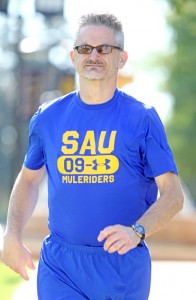 “The idea that you go to high school and then college to be successful and live happily ever after is good, if you can swing it, but life doesn’t necessarily give you that outcome,” said Taylor. “It’s a proving ground. It’s life.”
“The idea that you go to high school and then college to be successful and live happily ever after is good, if you can swing it, but life doesn’t necessarily give you that outcome,” said Taylor. “It’s a proving ground. It’s life.”
Goals are important to Taylor. He started realizing their value in Dr. Chrisanne Christensen’s undergraduate career planning and psychology class where students were challenged to set goals with the basic concepts of “I wish, I will” to achieve them.
He wanted to lose 25 pounds, to be fit and to eventually run a marathon. His organized mind stewed on the thought for nearly a year as he shaped a plan.
Involvement in SAU’s Fit Club, a fitness and weight loss support group, helped that desire spark into reality. Plotting with almost scientific accuracy, Taylor achieved his goal, and in the process started running as a means of exercise. He progressed from “Couch to 5K” to 5Ks and plotted forward to achieve half marathons in less than a year. In 2012 (through mid-June) alone, he logged more than 610 miles, which he anticipates doubling by the end of the year.
Taylor would also give you a list of reasons as to how there is nothing special about him. He considers himself a work in progress, but acknowledges the powerful life lessons he has learned along the way.
“The greatest thing about life is it gives you a second chance, it gives you a third chance, it gives you a fourth chance… As long as you are breathing, you have an opportunity to change – anything.”


